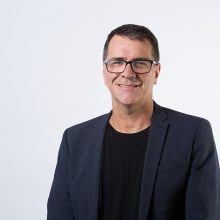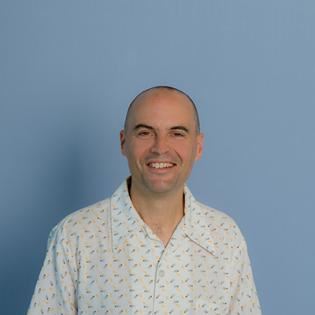
SLANSW Professional Learning Summit
Digital Design and Delivery: Using Digital Technologies to Support Reading Programs
Venue: SLANSW Zoom Room
Our keynote presenters and their research partners have prepared a little insight into the focus of the Summit, take a look: Digital Design & Delivery
This next SLANSW professional learning summit provides participants with the opportunity to engage in a number of workshops, closely linked to the keynote presentation themes of how young people operate in a digital world and how to design online surveys. These themes will be explored to support reading programs in our schools. The SLANSW Micro-credentialling group will present a panel discussion and provide a Q&A opportunity for participants.
Details of the full conference program are available here.
Featured speakers include
Professor Michael Dezuanni
 Professor Michael Dezuanni undertakes research about digital media, literacies and learning in home, school and community contexts. He is the Program Leader for Digital Inclusion and Participation for QUT’s Digital Media Research Centre which produces world-leading research for a creative, inclusive and fair digital media environment. He is also a chief investigator in the ARC Centre of Excellence for the Digital Child. Michael has been a chief investigator on six ARC Linkage projects with a focus on digital literacy and learning at school, the use of digital games in the classroom, digital inclusion in regional and rural Australia and in low income families, and the use of screen content in formal and informal learning.
Professor Michael Dezuanni undertakes research about digital media, literacies and learning in home, school and community contexts. He is the Program Leader for Digital Inclusion and Participation for QUT’s Digital Media Research Centre which produces world-leading research for a creative, inclusive and fair digital media environment. He is also a chief investigator in the ARC Centre of Excellence for the Digital Child. Michael has been a chief investigator on six ARC Linkage projects with a focus on digital literacy and learning at school, the use of digital games in the classroom, digital inclusion in regional and rural Australia and in low income families, and the use of screen content in formal and informal learning.
Michael is the author of ‘Peer Pedagogies on Digital Platforms – Learning with Minecraft Let’s Play videos’ (MIT Press 2020), he has edited three academic books, and is the author of over 45 journal articles and book chapters.
Michael has served on advisory committees for the Australian Digital Inclusion Alliance, the Australian Media Literacy Alliance, national charity The Smith Family, the Australian Curriculum and Assessment Authority (ACARA), the Alannah and Madeline Foundation, and Facebook Asia Pacific.
Professor Andrew Singleton

Andrew is Professor of Sociology and Social Research in the School of Humanities and Social Sciences at Deakin. His research interests include spirituality, youth religion, new religious movements (including Spiritualism), global Christianity, secularisation, non-religion, religious change, religious movements in the Global South.
He is a skilled quantitative and qualitative researcher and specialises in mixed-method projects.
Andrew has presented and published extensively in these areas both nationally and internationally. He is author of three books: Freedoms, Faiths and Futures: Teenage Australians on Religion, Sexuality and Diversity (with A. Halafoff, M.L. Rasmussen & G.D. Bouma, Bloomsbury, 2021); Religion, Culture and Society: A Global Approach (Sage 2014) and The Spirit of Generation Y: Young People’s Spirituality in a Changing Australia (with M. Mason & R. Webber, Garrett Publications, 2007).
Micro-Credentialling Panel
In this session a panel of group members will consider the “What,” “Why,” and “How” of micro-credentialling. Using examples in various stages of development, they’ll discuss the delivery of content through short, competency-based units that provide recognition of a student’s mastery of knowledge and skills in areas such as information literacy and library orientation. The session will include a Q&A opportunity.
Please note SLANSW's Cancellation and Refund Policy for Professional Learning Events when registering for this conference
Elective Professional Development
As NESA changes continue to unfold, this Professional Learning Summit is an Elective Professional Development opportunity. The following suggested standards apply to the content being presented in the keynotes and workshops:
1.2.2 Structure teaching programs using research and collegial advice about how students learn.
2.5.2 Apply knowledge and understanding of effective teaching strategies to support students’ literacy and numeracy achievement.
3.4.2 Select and/or create and use a range of resources, including ICT, to engage students in their learning.
4.5.2 Incorporate strategies to promote the safe, responsible and ethical use of ICT in learning and teaching.
5.1.2 Develop, select and use informal and formal, diagnostic, formative and summative assessment strategies to assess student learning.
6.2.2 Participate in learning to update knowledge and practice targeted to professional needs and school and/or system priorities.
7.4.2 Participate in professional and community networks and forums to broaden knowledge and improve practice.